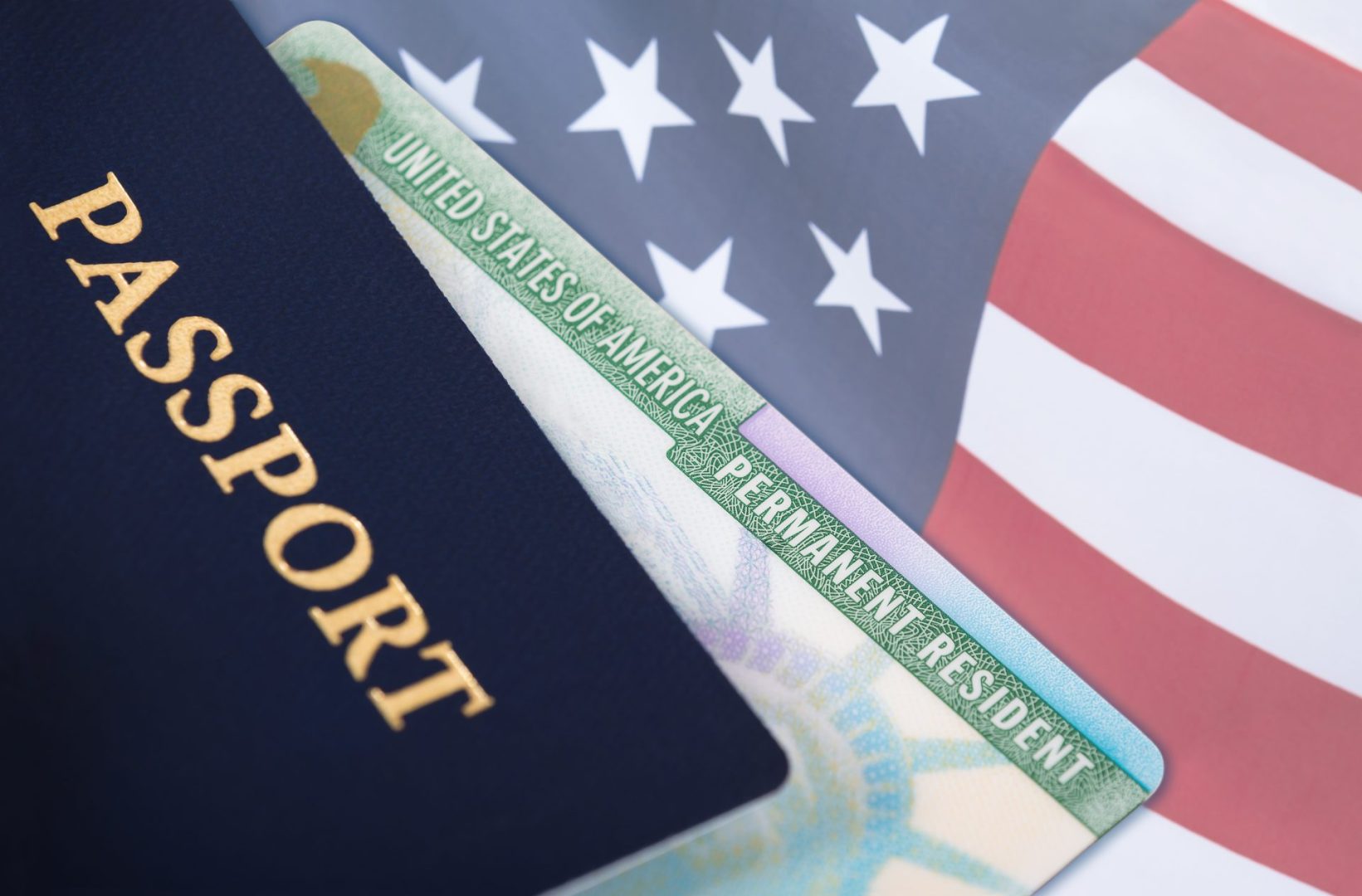A sweeping new travel ban has created widespread anxiety among permanent residents across the United States, despite official assurances that green card holders remain exempt from the restrictions. The comprehensive policy affects travelers from 19 countries and has generated significant confusion about who can enter the country and under what circumstances.
The travel restrictions, which took effect in early June, represent one of the most extensive immigration policy changes in recent years. While the official proclamation clearly states that lawful permanent residents should not face additional barriers, the complex implementation and historical context of similar policies have left many green card holders uncertain about their travel rights.
The ban creates a two-tiered system of restrictions, with 12 countries facing complete entry suspensions and seven others subject to partial limitations. This complexity has contributed to widespread confusion among immigrant communities, legal professionals, and even some government officials tasked with implementing the new rules.
For the millions of permanent residents who maintain family, business, or personal connections abroad, the uncertainty surrounding travel has created difficult decisions about whether to risk international trips or remain in the United States until the policy landscape becomes clearer.
Concern number 1: Border confusion and inconsistent enforcement
The primary worry among permanent residents involves potential confusion at border crossings, where individual officers may not have complete understanding of the exemptions or may apply additional scrutiny based on country of origin. Historical precedent shows that complex immigration policies often lead to inconsistent enforcement during initial implementation periods.
Border protection officers work under enormous pressure to make quick decisions about admissibility, and the nuanced exemptions in the travel ban create opportunities for misunderstandings or overly cautious interpretations of the rules. Even brief detentions or additional questioning can create significant stress and travel delays for lawful permanent residents.
The fear of being separated from family members who may not qualify for exemptions adds another layer of anxiety for permanent residents traveling with relatives. Mixed-status families face particularly complex situations where some members can travel freely while others cannot, creating impossible choices about family unity versus travel needs.
Communication gaps between different government agencies involved in travel screening have historically created situations where travelers with valid documents face unexpected challenges. Permanent residents worry that their exemption status may not be clearly communicated to all relevant personnel at ports of entry.
Concern number 2: Impact on family reunification and emergencies
Many permanent residents maintain close family ties in their countries of origin and face heart-wrenching decisions about whether to risk travel for family emergencies, medical situations, or important life events. The uncertainty surrounding reentry, even with official exemptions, creates additional stress during already difficult circumstances.
Medical emergencies affecting family members abroad present particularly challenging situations where permanent residents must weigh the importance of being with loved ones against potential complications in returning to their established lives in the United States. These decisions become even more complex when the emergency involves elderly parents or seriously ill relatives.
Wedding ceremonies, funerals, and other significant family events that cannot be postponed or rescheduled create pressure for permanent residents to travel despite their concerns about potential complications. The emotional toll of missing important family moments due to policy uncertainty extends beyond the immediate travel restrictions.
Business obligations and professional commitments in home countries may become impossible to fulfill if permanent residents cannot travel with confidence about their ability to return. This limitation can affect career advancement, business relationships, and economic opportunities that depend on international mobility.
Concern number 3: Documentation and proof requirements
Permanent residents express anxiety about potential new documentation requirements or additional proof that may be requested at borders, even though their green cards should provide sufficient evidence of their lawful status. The concern stems from reports of travelers being asked to provide extensive additional documentation during previous policy implementations.
The possibility of being required to demonstrate ongoing ties to the United States, such as employment records, lease agreements, or family relationships, creates worry for permanent residents who may not carry such documentation during routine travel. These requirements could create significant complications for travelers who assumed their green card provided sufficient proof of their right to return.
Questions about the validity of older green cards or those nearing expiration dates add another layer of concern, as permanent residents worry that border officers may interpret expired documents as grounds for additional scrutiny or delays. The timing of card renewals becomes more critical when travel restrictions create heightened scrutiny.
Digital documentation and the potential for technology failures at border crossings create additional anxiety for permanent residents who worry that system problems could complicate their reentry process. The reliance on electronic verification systems makes travelers vulnerable to technical issues beyond their control.
Concern number 4: Long-term residency status implications
Some permanent residents worry that extended travel restrictions could affect their ability to maintain the continuous residence required for naturalization or could complicate future citizenship applications. While the travel ban itself shouldn’t impact residency status, the uncertainty creates anxiety about potential long-term consequences.
The accumulation of travel delays, additional questioning, or documentation issues could potentially create patterns that immigration officials might interpret as problematic during future applications or status reviews. This concern leads some permanent residents to avoid travel entirely rather than risk any potential complications.
Questions about how travel ban compliance is documented in government systems create worry that permanent residents might face unexpected issues in future immigration processes, even if they follow all current rules correctly. The interconnected nature of immigration databases means that today’s travel experiences could affect tomorrow’s applications.
The possibility that travel patterns or country connections could influence future security clearance applications, employment eligibility, or other benefits creates additional considerations for permanent residents planning their travel and career decisions.
Concern number 5: Economic and professional impact
Travel restrictions create significant economic implications for permanent residents who depend on international business relationships, have professional obligations abroad, or maintain income sources in their countries of origin. The uncertainty surrounding travel can disrupt established business patterns and financial planning.
Professional conferences, training opportunities, and career development activities that require international travel become sources of stress rather than advancement opportunities when permanent residents cannot travel with confidence about their return. This limitation can affect long-term career trajectories and earning potential.
Family businesses or property investments in home countries may suffer when permanent residents cannot travel to manage their affairs directly. The inability to handle time-sensitive business matters in person can result in financial losses or missed opportunities that extend beyond the duration of the travel restrictions.
Educational opportunities, including visiting family members or participating in cultural exchanges, become complicated when travel uncertainty affects planning and commitments. Students and professionals who depend on international experiences for their development face difficult choices about their futures.
Understanding the official exemptions and protections
Despite the widespread anxiety, permanent residents do maintain significant protections under the travel ban that distinguish them from other travelers affected by the restrictions. Understanding these protections helps clarify rights and responsibilities while highlighting the gap between official policy and practical concerns.
Green card holders retain their right to enter the United States based on their permanent resident status, which supersedes the country-specific restrictions that apply to visa holders and other travelers. This fundamental protection remains unchanged regardless of country of origin or the specific terms of the travel ban.
The exemption for permanent residents reflects the legal principle that individuals with established residency rights cannot be arbitrarily barred from returning to their homes. This protection has constitutional foundations that provide stronger legal standing than temporary visa privileges or other immigration statuses.
Customs and Border Protection procedures for permanent residents remain largely unchanged, with standard inspection processes continuing to apply without additional restrictions specifically related to the travel ban. This continuity provides some reassurance about the practical implementation of the exemptions.
Practical strategies for confident travel
Permanent residents can take specific steps to minimize anxiety and complications when traveling under the current restrictions. Preparation and documentation can help ensure smooth border crossings while addressing many of the common concerns about travel ban implementation.
Carrying comprehensive documentation beyond the required green card can help address any questions that arise during border inspections. Employment letters, lease agreements, and other evidence of ongoing U.S. ties can provide additional reassurance for both travelers and border officers.
Staying informed about current implementation practices and any updates to the travel restrictions helps permanent residents make informed decisions about their travel timing and preparation. Regular consultation of official government sources provides the most reliable information about current policies.
Working with immigration attorneys or other qualified professionals can provide personalized guidance for permanent residents with specific concerns about their travel situations. Professional advice becomes particularly valuable for individuals with complex immigration histories or unusual circumstances.
Planning extra time for potential delays and maintaining flexibility in travel schedules can reduce stress associated with possible additional screening or documentation requirements. This preparation helps manage expectations while accommodating potential complications.
The broader context of immigration policy uncertainty
The travel ban represents part of a broader pattern of immigration policy changes that have created ongoing uncertainty for immigrant communities throughout the United States. This context helps explain why even exempt individuals experience anxiety about their status and rights.
Historical precedent shows that immigration policies often undergo modifications, clarifications, and implementation changes that can affect how exemptions and protections are applied in practice. This unpredictability contributes to the cautious approach many permanent residents take toward travel planning.
The interconnected nature of immigration policies means that changes in one area can have unexpected effects on other aspects of immigrant life, creating reasonable concern about potential future modifications that could affect permanent residents more directly.
Community support networks and immigrant advocacy organizations provide valuable resources for permanent residents navigating the uncertainty surrounding travel restrictions. These organizations often have the most current information about practical implementation and can offer guidance specific to individual circumstances.
The travel ban’s impact on permanent residents illustrates the complex relationship between immigration policy, individual rights, and practical implementation challenges. While official exemptions provide legal protection, the human element of uncertainty and concern reflects the broader challenges facing immigrant communities in an evolving policy environment.














